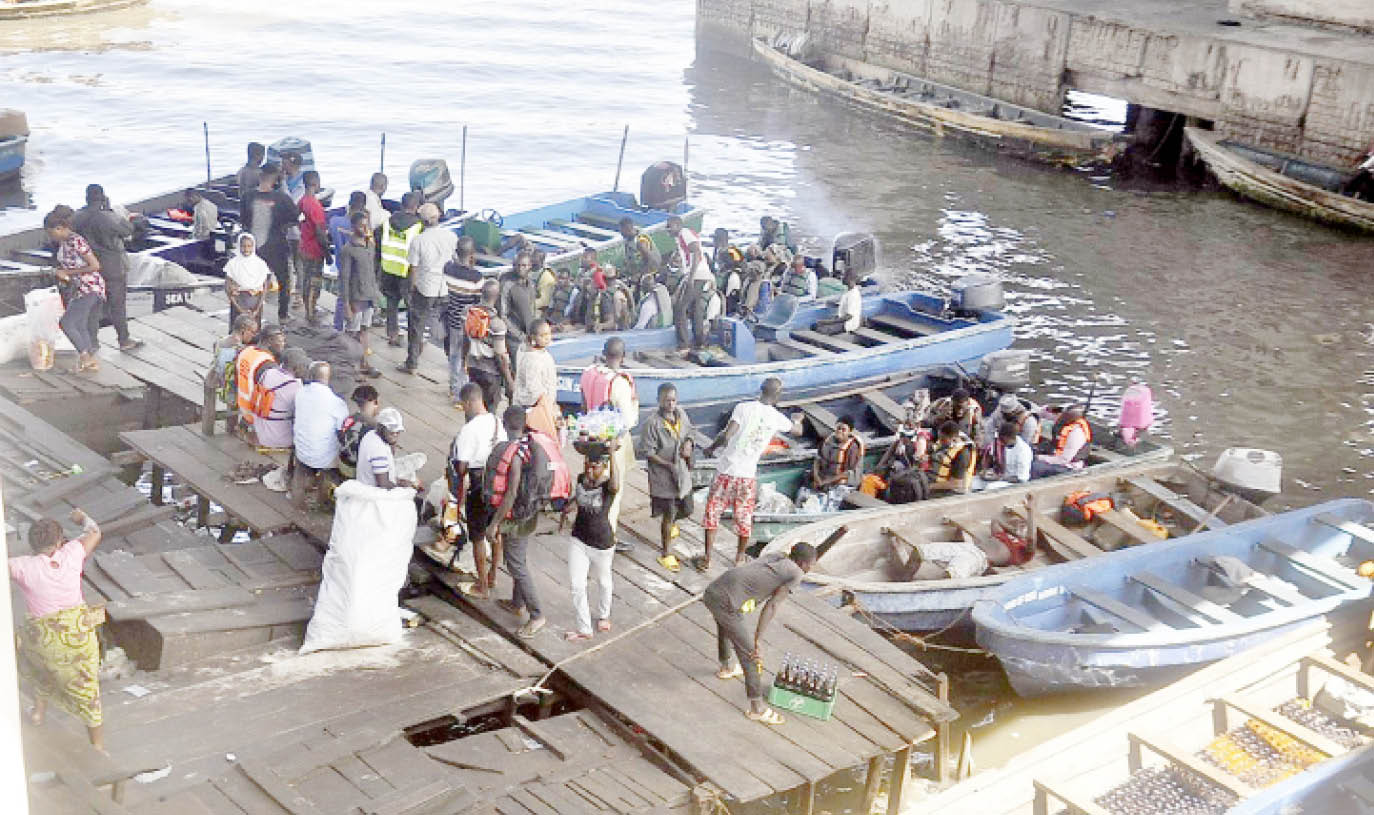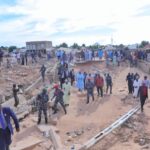Lagosians have opted for water transportation as a result of the chaotic gridlock that has characterised the commercial nerve centre of the country.
Indeed, it is now a nightmare to move from one end of the town to another, no thanks to the recent heavy rain, as well as the expansion of roads, which the state government has embarked on simultaneously.
- Terrorism financing: Court returns case of 45 suspects to chief judge
- National Convention: PDP to allow consensus candidates
Mostly affected are residents in Ikorodu, Badore, Okokomaiko, Agbara and Badagry areas. In these areas, residents only access their offices and business places in areas like Lagos Island, Apapa, Victoria Island and Lekki through the very-busy Third Mainland Bridge, Ikorodu road and the Badagry-Mile 2 expressway.
The Lagos State Government simultaneously awarded the contract of the rehabilitation and expansion of major roads and drainages in the state to ease traffic, a situation that has compounded the situation.
The ongoing construction work on the expressway from Mile 2 to Okokomaiko has claimed many houses.
Although the construction work on the Mile 2-Badagry expressway by the China Civil Engineering and Construction Company (CCECC) has extended beyond Okomaiko, the confusion created by some gaps left at Volks, Iyana-Iba and Okomaiko by the contractor is the major cause of the gridlock on that stretch of the road.
The expressway between Okokomaiko and Volks has become almost impassable. A journey that normally took motorists and commuters less than two hours now takes over three hours as vehicles compete with commercial motorcyclists to navigate the bad portions.

This has compound the situation as road users are forced to walk several distances to cross areas where the gridlock is most noticed.
Daily Trust reports that commercial bus operators have taken advantage of this confusion to hike fares. For instance, the fare from Mile 2 to Okokomaiko was N200, but with the present traffic situation, commuters are made to pay between N300 and N400 for the same distance.
To conquer the situation, many commuters have abandoned the roads as they lose valuable man-hours in the traffic hold-ups. They now patronise the fibre plastic 18 and 24-seater ferryboats.
Abdul Subaru, who works as a clearing agent at the Apapa and Tin-Can Island seaports said, “Now that I have discovered the ferry service at the Agbara jetty, it has reduced my burden. The trip is usually risky, but it takes me about 45 minutes from Agbara to get to Liverpool in Apapa. The logjam on the road lasts for over five hours. Although it is cheaper to go by road, it would be at the risk of losing one’s job.
“I started going to work by boat many years ago. At first it was scary, but right now, it is fun as I see different riverine villages daily. Yes, some persons may have lost their lives during some of the trips, but that cannot stop me from going by ferryboats.”
Another commuter, Sani Idrisu said, “Since I discovered the ferry alternative, I now find it easy to go to work in Apapa. The only thing is that one must be conscious of time. Ferry service from Agbara to Apapa commences at 7am and ends at 7pm. Once you miss it around 5:30pm at Liverpool or Tin Can when you are going back home, the only option left for you is the road confusion.”
Samson Chukwudi, who resides at Ikorodu and works on the Island, said it took him less than an hour to travel from the jetty at Badore to get to the one at Ebutte.
“Now, I hardly go to work by road since I started using the ferry. Some say it is risky, but to me, it is part of life. My concern is the submerged logs that cause mishaps on this route. The government should help to clear the submerged woods to make the water safe,” he said.
The coordinator of the National Emergency Management Agency (NEMA) in the South-West, Ibrahim Farinloye, admitted that water transportation could be prone to disaster as a result of many factors.
“Most of the life jackets used by boat operators are either expired or fake. At times, operators carry more passengers than what is approved by the management of the National Inland Waterways Authority (NIWA) or the Lagos State Inland Waterways Authority (LASWA).
“Navigation is also worsened by the activities of dredgers who lay pipes indiscriminately without mounting any warning signs. Boats capsize the moment they run over submerged pipes.
“Also, nets abandoned by local fishermen cause navigational hazards. Regulators can do more if they enforce all navigational laws,” he said.
In response to the growing demands of commuters, the Lagos Ferry Services, Lagferry, an agency of the Lagos State Ministry of Transportation, has concluded plans to deploy more ferryboats into its commercial fleet.
Operators of Lagferry revealed that they were targeting 480,000 passengers on waterways daily. This, he said, was aimed at enhancing transportation system in the state.
The managing director of Lagferry, Mr Ladi Balogun and the general manager of the LASWA, Mr Damilola Emmanuel, made the disclosure at a joint media briefing on the commercial launch of operations of
Lagferry held at Alausa

 Join Daily Trust WhatsApp Community For Quick Access To News and Happenings Around You.
Join Daily Trust WhatsApp Community For Quick Access To News and Happenings Around You.


